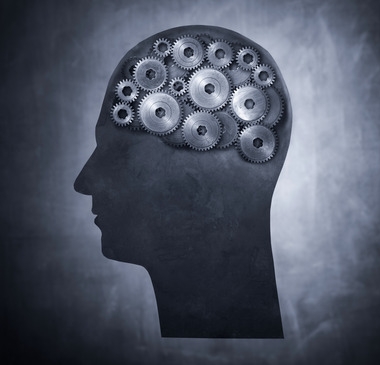|


In This Issue |
|
This month, we're focusing on weight health and nutrition. Everything that goes into your body can have a big impact on your quality-of-life. In fact, our feature story talks about how what you eat affects the chemistry of your brain. Then, we look at some small changes to your diet that can cause some big changes to your energy levels. Have a question you'd like us to answer? Take a moment and send us an email at the address below. |
Have a question, comment, or concern? |
| Last Month | ||||||||||||||||||||||||||||
| This Month | ||||||||||||||||||||||||||||
How to Use Brain Chemicals to Lose Weight |
||||||||||||||||||||||||||||
|
One brain chemical in particular, orexin, is making waves in the medical community.
Profile: Orexin Orexin is a brain chemical that’s a big player in terms of sleepiness and arousal. If your orexin levels are low, chances are you suffer from low metabolism and/or obesity. In a clinical study, one group of mice was fed orexin and a high fat diet. Another group of mice was fed the same diet, but without the orexin. And what happened? The non-orexin group became obese. The orexin group remained slim. These results are getting the pharmaceutical industry very exicted. Instead of making appetite suppressants, orexin-based treatments could focus on helping your body burn the fat off itself. This is big news for people who eat relatively normally but just can’t lose weight.
Sugar vs Orexin Know what it’s like when you want to rest after eating a big piece of cake? Studies show that this may be caused by lowered orexin levels. Sugar can make both you, and the orexin factory in your brain, lazy. The result is a one-two punch to your waist-line:
But, some foods help us fight back.
Orexin-Producing Foods Even a little bit of protein mixed with sugar helps to counteract the sugar-based sleepiness. Foods rich in protein actually increase orexin cell activity, making you more energetic and more alert. So what does this mean for dieters? Adding a small amount of protein to every meal, without changing anything else, may help them lose weight. When you feel yourself getting sleepy, reach for:
Keep some simple, high protein snacks within reach. That way, instead of making that 3pm run to the vending machine, eat a small container of yogurt instead. Protein keeps you feeling full for longer. It gives you enough energy to keep going for the whole day. And now we know we have our brain, and orexin, to thank. |
||||||||||||||||||||||||||||
Five Superfood Mix-ins for Busy People |
||||||||||||||||||||||||||||
|
It can be tough to get what your body needs when rushing around, trying to get things done. But, better eating doesn’t have to be a big undertaking. Try picking up one (or all) of these superfoods to add to your everyday routine. |
||||||||||||||||||||||||||||
|
||||||||||||||||||||||||||||
Does Body Weight Affect Lifespan? |
||||||||||||||||||||||||||||
|
Like with most health questions, the answer is: sometimes. Body weight and lifespan are not tied up together. One person can be 'overweight' and be very healthy while another person can be their ideal weight and on their way to an early grave. So, what’s the secret to better health and a longer life? Turns out there are two big factors.
Factor One: Eating Habits Being overweight or underweight speaks volumes about your diet. It is not a sure-fire gauge of how healthy you are. At best, it's a very rough estimate. Sometimes unusual body weight can suggest diabetes, heart disease, or other conditions. If you’re concerned, talk to your doctor. The best ideas are to eat right and get regular exercise. Unless a medical condition prevents it (read: don’t go for a run with a broken leg), getting some physical activity in your day can be a great way to boost your health and improve overall happiness. Eating the right balance of fruits, vegetables, whole grains, lean meat, and dairy is a big part of your overall mood, your appearance, and how your body functions.
Factor Two: Genetics Health conditions are often tied to genetic makeup. So when it comes to health concerns that affect lifespan, your genes are much more important than your weight. If you lean genetically towards certain diseases, then no amount of exercise will change that fact. It’s just how you’re put together. For a quick gauge of genetic leanings, look at your family history. If your great-grandfather, grandfather, and father all had heart attacks after 40, that makes a difference. Then again, if your family reunions consist of smoking competitions and junk food buffets, that makes a difference too.
It’s About You Is it possible to be bigger and still live a long and healthy life? Yes, if that’s how your body is put together. Diet, exercise, and genetics are more important than body weight. If you’re concerned about factors above and beyond eating well and staying active, be sure to talk to your family doctor. Also, annual health screenings can catch issues early. And early detection and treatment can make years of difference in your life. |
||||||||||||||||||||||||||||
 |
||||||||||||||||||||||||||||
 When our bodies are functioning properly, they work like well-oiled machines: disease-free and with plenty of energy. But aside from getting regular exercise and eating well, it turns out that brain chemicals, called neurotransmitters, play a big part in healthy living. And weight loss, too.
When our bodies are functioning properly, they work like well-oiled machines: disease-free and with plenty of energy. But aside from getting regular exercise and eating well, it turns out that brain chemicals, called neurotransmitters, play a big part in healthy living. And weight loss, too.